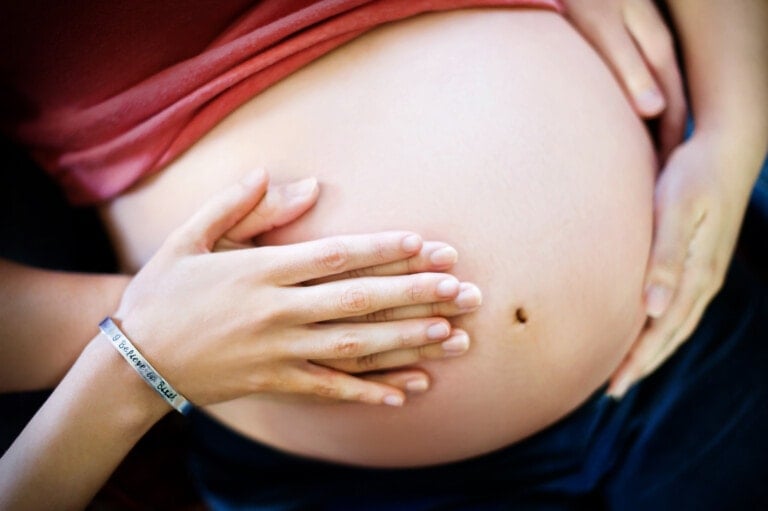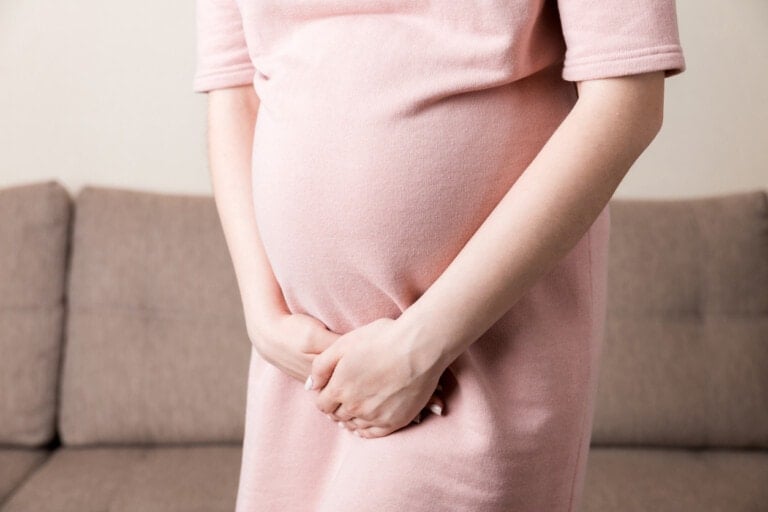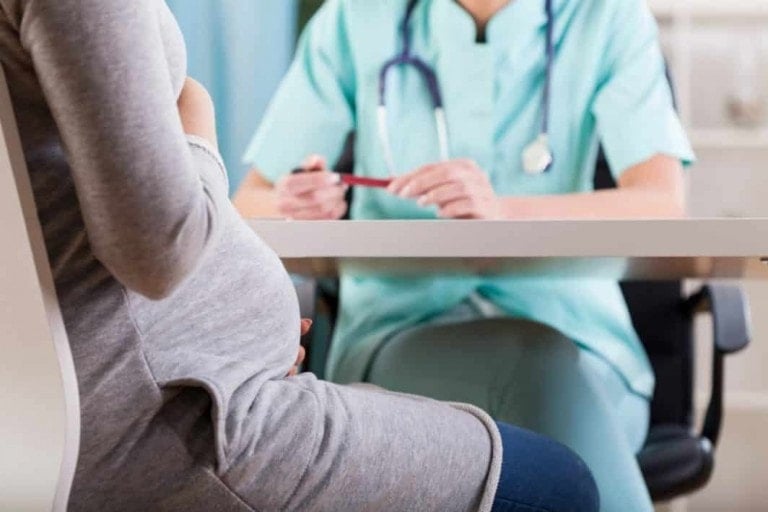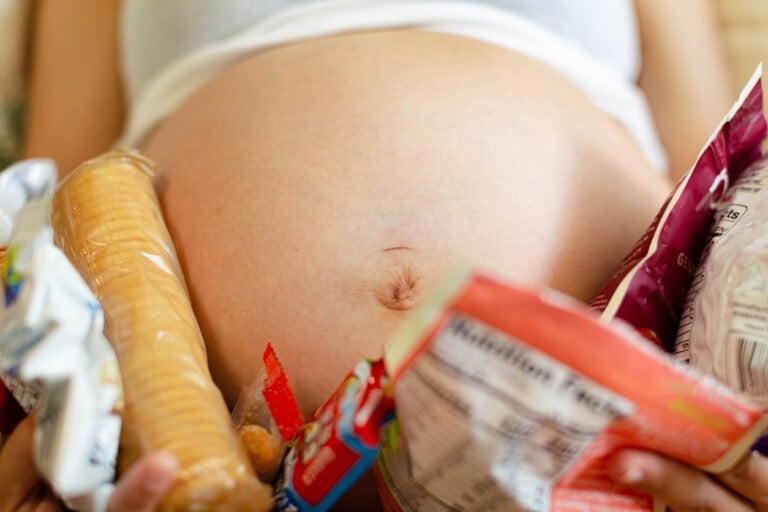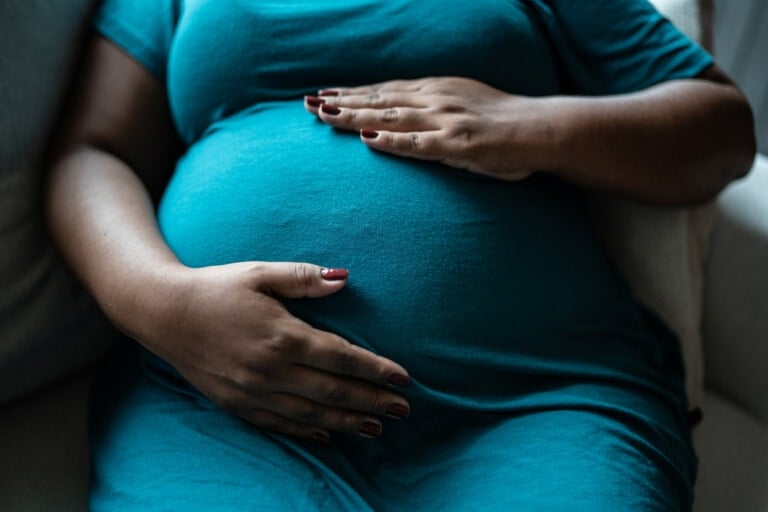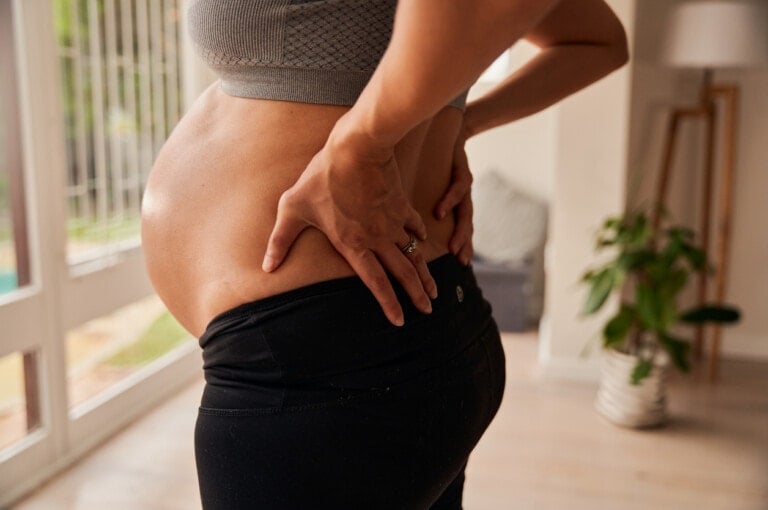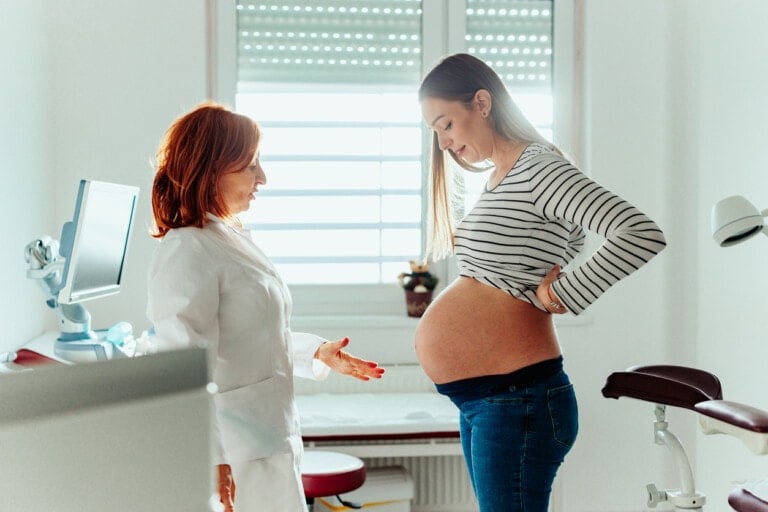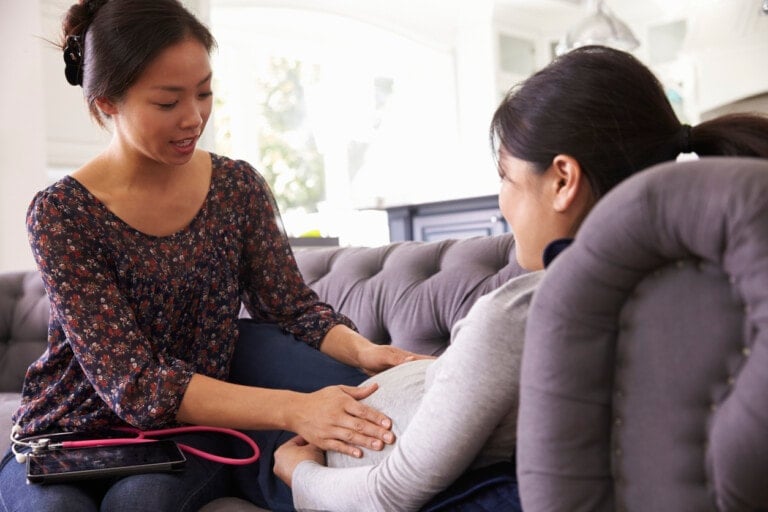I may be a bit biased on this since I am a licensed massage therapist. Still, I believe that all women (especially women that are pregnant and after they’ve had a baby) deserve massages… regularly. Massage has been proven in multiple studies to be highly beneficial to your mind and body. Not only that, but massage is also helpful to your baby! If you have been wondering if massage is safe and if it’s the right choice for you, then you’ve found the right article! Today I’m sharing the benefits of prenatal massage and postpartum massage and why you should schedule your next appointment. 😉
Prenatal Massage
As we all know, a woman’s body undergoes some crazy, amazing changes during pregnancy. Women’s bodies are incredible. However, all of these changes can result in several uncomfortable conditions. But even with those pregnancy discomforts, there are things that you can do to relieve those aches and pains, and one of them is massage. Massage is helpful throughout all stages of pregnancy, birth, and postpartum. Massage during pregnancy not only makes a woman feel pampered and more emotionally grounded, but it also offers undeniable physical benefits. The overall goals for prenatal massage are to help minimize stress, promote relaxation, and prepare the muscles for childbirth. Here are some specific benefits of massage during each trimester:
First Trimester
- Reduces stress and reinforces a habit of relaxation
- Relieves headaches
- Reduces fatigue – massage helps carry away lactic acid and other cellular waste products that build up, which combats fatigue and helps her feel more energetic.
- Helps alleviate morning sickness
Second Trimester
- Alleviates backaches
- Relieves leg cramps
- Eases the load on the heart to help keep her blood pressure in check
- Minimizes stress on the nervous system, including the sciatic nerve
- Reduces stress on weight-bearing joints
- Encourages blood and lymph circulation
- Provides a nurturing, soothing touch, which promotes the release of emotional and physical tension
Third Trimester
- Reduces swelling/edema
- Helps relax nervous tension – which aids in better sleep
- Relieves pain from varicosities
- Relieves round ligament pain
- Prepares pelvic muscles for the birth process by loosening the pelvis and ridding the body of excess tension before the onset of labor
- Stimulates glandular secretions, which helps relieve depression and anxiety during pregnancy
- Stabilizes hormone levels
- Increases chances of carrying the baby to term and generally have a happier, healthier pregnancy
Massage during pregnancy also stimulates your lymphatic system, boosting immunity and removing excess toxins while stabilizing hormone levels and balancing the glandular system. Prenatal massage assists the circulatory and lymphatic systems by promoting the movement of blood and lymph, which brings more nutrients to the cells of both the mother and the baby. This means better vitality for the mother and more nourishment for the baby. What could be better?!
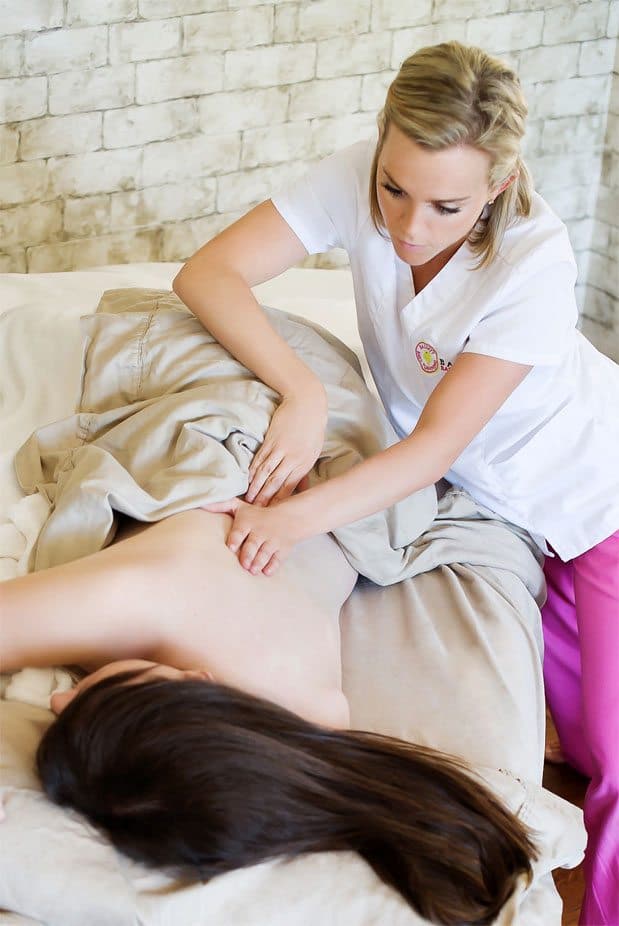
Before you start your massage, it’s always a good idea to discuss with your therapist any everyday symptoms you’d like to see relieved. Those might include:
- Headaches can be relieved by massage, focusing on the head, neck, and shoulders. In addition, maintaining optimal levels of stress relief through massage reduces the chances of migraines or tension headaches by relaxing trigger points and muscle spasms.
- Muscle tension created by carrying the extra weight of a baby can be relieved by encouraging blood flow to the afflicted areas. This provides more nutrient-rich oxygen and increases the flow of lymphatic fluid, which sweeps away toxins and metabolic waste.
- Fatigue, backaches, leg cramps, and swelling/edema can all be relieved through massage for pregnant women.
- The ordinary aches and pains of pregnancy are countered by the release of serotonin, your body’s natural anti-pain chemical, which is stimulated by massage.
Women with normal, low-risk pregnancies can benefit greatly from massage by a trained pregnancy massage therapist. However, women in high-risk pregnancies should consult with their doctor or midwife before beginning a massage therapy program. If, at any time during the massage, you experience discomfort, tell your therapist immediately.
Postpartum Massage
Massage is also super beneficial after giving birth to your baby (the postpartum period). Whether you had a difficult birth experience or your baby’s birth went smoothly, a woman’s body must undergo quite a bit of structural realignment. Postpartum massage helps restore your muscle tone in the abdomen and reposition the pelvis.
Benefits include:
- Relieves tension from the birthing process
- Clears excess fluids from the body more quickly
- Hastens recovery
- Encourages pelvic and abdominal organs to return to pre-pregnancy positions
- Promotes shift return to digestive function
- Increases energy levels and reduces fatigue
- Aids in returning the uterus to normal size
- Checks for diastasis recti
- Decreases muscle tension from the exertion of labor
- Provides emotional support
- Addresses scar healing protocol after c-section, if applicable.
- Relieves shoulder, neck, and arm tension from breastfeeding
Postpartum care is an important part of the complete birthing process. Unfortunately, in our culture, we overlook this type of care, but I’m hoping that more women are educating themselves and reading articles like this so they can receive the kind of care they deserve. Often mothers must take it upon themselves to ensure they receive the emotional and physical support they will need following their pregnancy. Taking the time for postnatal massage as part of your recovery plan will allow you to be at your best while caring for yourself and your baby.
Cheers to happier and healthier mamas & babies!





















